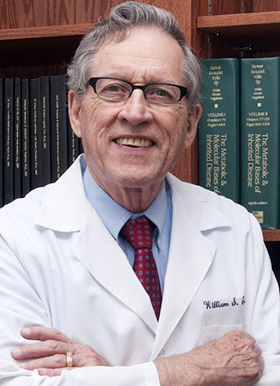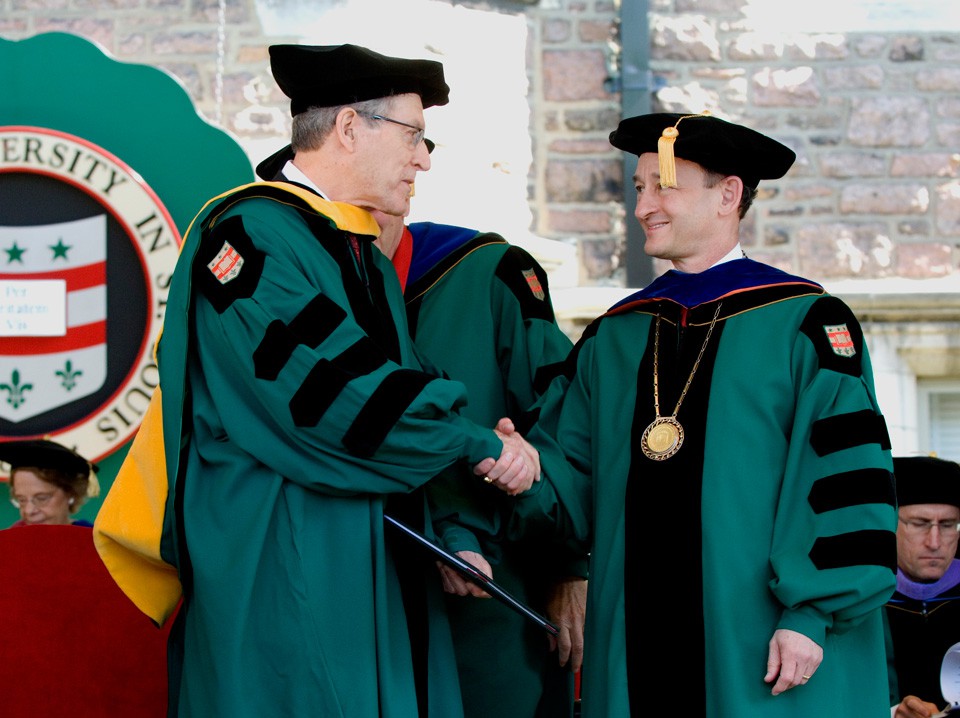
William S. Sly
An internationally renowned physician and scientist, Sly has contributed greatly to the understanding of inborn errors of metabolism. These inherited disorders cause biological substances to collect within tissues and organs, interfering with normal function. Sly has uncovered the genetic and biochemical foundations of several rare, yet devastating diseases and helped introduce promising new treatment options. Sly received an honorary doctor of science degree in 2007.

Sly did his undergraduate work at Saint Louis University and obtained his medical degree from its School of Medicine in 1957.
He trained in internal medicine at Washington University’s School of Medicine and received research training in laboratories at the National Institutes of Health, the Centre National de la Recherche Scientifique in Paris and at the University of Wisconsin before joining WUSTL’s School of Medicine faculty in 1964. There he directed the Division of Medical Genetics for 20 years.
William S. Sly, MD, was appointed the Alice A. Doisy Professor and chairman of the Edward A. Doisy Department of Biochemistry and Molecular Biology at Saint Louis University in 1984. In February 2007, he was also named the inaugural holder of the James B. and Joan C. Peter Endowed Chair in Biochemistry and Molecular Biology.
Identifying causes and cures to lesser-known diseases
In 1973, Sly and his research group described the first patient with mucopolysaccharidosis VII, later termed Sly syndrome. This research provided the rationale for enzyme replacement therapy in Gaucher’s disease, the most common lysosomal storage disease, and has encouraged the development of enzyme replacement for other lysosomal diseases. Sly’s work on lysosomal storage disorders led to his election to the National Academy of Sciences in 1989.
Sly also identified the first inherited deficiency of a human carbonic anhydrase and characterized the associated bone, brain and kidney disease. In addition, he has conducted extensive research on hereditary hemochromatosis.